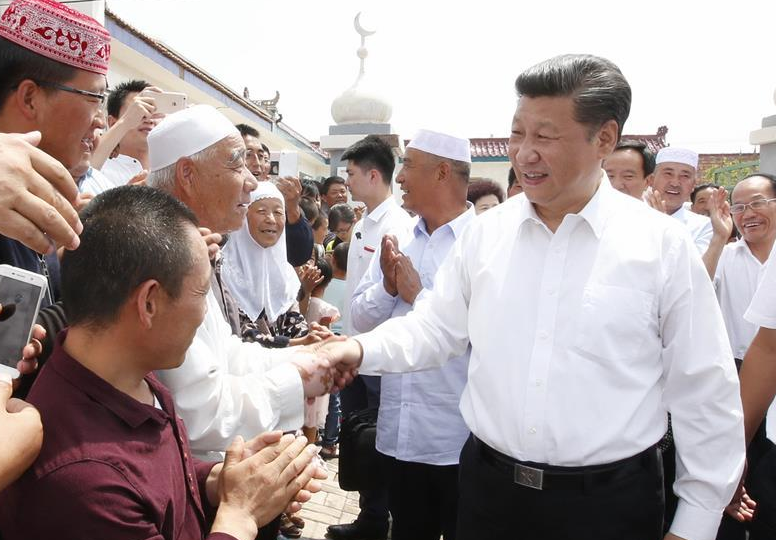'East-west cooperation' urged in poverty alleviation
 0 Comment(s)
0 Comment(s) Print
Print E-mail China.org.cn, July 28, 2016
E-mail China.org.cn, July 28, 2016
During his three-day visit to Ningxia Hui Autonomous Region in July, General Secretary Xi Jinping of the Central Committee of the Communist Party of China (CPC), also Chinese president, reiterated China's 2020 poverty alleviation targets and stressed precision in targeting and helping the poor.
Poverty relief is a priority for China for the next few years. As the country aims to build a "moderately prosperous society in an all-round way" by 2020, over 55 million people should be lifted out of poverty.
Poverty alleviation through east-west cooperation
In Ningxia, a less developed area with a high concentration of ethnic minorities in northwest China, President Xi presided over a symposium on poverty alleviation in the capital city of Yinchuan on July 20.
Xi stressed at the meeting the time-honored practice of "cooperation between paired eastern and western regions in poverty alleviation" and urged developed regions in the east to continue helping their partner regions in the west better fight poverty.
Pairing and cooperation between eastern and western regions in poverty relief is conducive to coordinated development and common prosperity, Xi said.
China has used the strategy for 20 years, and the widening gap between the east and west has been curbed, said the president, hailing "significant progress" in poverty alleviation in poor western areas and old revolutionary base areas.
Xi also stressed precision in targeting and helping the poor, not only financially, but also in education, culture, health, science and technology.
Officials will be assessed not only on how much effort they make but also on whether their measures are effective, said Xi.
No region or ethnic group should be left behind
During his trip, the president visited villages, businesses, a mosque, and a revolutionary education base to learn about people's lives.
Xi checked poverty relief work in villages in Guyuan City, talking with villagers and urging Party members to take the lead in poverty alleviation efforts.
No region or ethnic group should be left behind in China's drive to build a moderately prosperous society by 2020, Xi said.
In Yuanlong Migrant Village in Minning Township, Yongning County, Yinchuan City, Xi said to a villager: "I hope your family will live a better and better life."
The village was built 20 years ago with Xi's suggestion when he worked in Fujian Province. Its population has since expanded from 8,000 to over 60,000.
Xi inspected an incubator park established with cooperation between Ningxia and Zhejiang Province, encouraging more businesses to join poverty relief efforts in western China.
Since he took office, Xi has attached great importance to poverty relief. For four consecutive years, Xi Jinping's New Year inspection tours have taken him to the frontlines of China's war against poverty.
During the 2016 Spring Festival, he visited Jiangxi Province. Xi visited Gansu Province in 2013, north China's Inner Mongolia Autonomous Region in 2014 and northwest China's Shaanxi Province in 2015.
Religious and social harmony
Ningxia is home to many Chinese Muslims and people from the Hui ethnic minority group. The president called for religious harmony and unity between the Han ethnic group and various ethnic minority groups.
More efforts should be made to "direct religious figures and believers to respect and abide by the law, resolutely guard against illegal infiltration via religious means and promote religious and social harmony," he said.
"No matter whether it's local or imported, our country's religions have been deeply imprinted into the Chinese civilization, with a history of more than 5,000 years, and have been deeply integrated into our social life," Xi said during his visit to Xincheng Mosque in Yinchuan on July 19.
While education on national unity and progress should be enhanced, Xi also called for accelerating economic and social development in regions mainly inhabited by ethnic minority groups so as to promote unity and cohesion.
Religious circles should interpret Islamic doctrine in positive ways, publicize latest achievements in interpretation, foster religious personnel, especially among the middle-aged and the young, and better serve and guide believers, Xi added.







Go to Forum >>0 Comment(s)